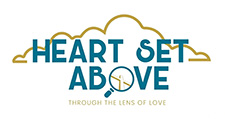Understanding the Pitfalls of Outsourcing Godly Parenting
In my first professional job, I was the assistant to several executives within a small tech company. The office manager, one of my many bosses, was giving me my performance review when she said, “Let’s take a walk around the office and look at some things.”
I should have known that this was not a good sign, but I blithely followed her as we toured the office. We stopped at our industrial-sized copier where she pointed out an empty cartridge of toner that had been sitting there for several days. She asked me, “Have you seen this sitting here at any time during the past week?”
With the hopes of subtly clearing my name from being the perpetrator of the mess while also trying to gain some brownie points with my boss, I attempted to align with her obvious frustration over this negligence and foolishly answered, “Yes, I have! Can you believe someone changed it and just left it there?!”
My boss (and, incidentally, sister in Christ) gently and lovingly admonished me and helped me to see that the ideal in office courtesy and conscientiousness does not always happen. I experienced an epiphany in the life-altering moment when she asked me, “Who else do you think is going to pick it up? . . . No one. That’s your job.”
This pivotal moment in my professional development has also been invaluable in my pursuit of godly parenting. Too often, subtle inklings regarding our children’s observations, experiences, or character traits arise, and we frequently choose to overlook them, hoping they will resolve on their own; sometimes even shaming our children for their lack of understanding, awareness, or maturity. At times, we may even resort to shaming our children for what we perceive as their limited understanding, awareness, or maturity.
As a teenager, my dad looked at me incredulously when he found out that I didn’t know the word ubiquitous. Initially, I felt ashamed that I didn’t know this apparently common word (or, you might say, ubiquitous word) which, based on my dad’s expression, every living being in the known universe understood except for me.
A few days later, still stewing in my shame, I realized, why should I feel ashamed? Isn’t it ultimately his fault that I don’t know what “ubiquitous” means? Sure, the public school system failed me in this addition to my vocabulary, but doesn’t the ultimate responsibility of my learning and development lie with my parents?
Too often we expect our kids, their teachers, their peers, their teen ministry leaders, their coaches, or the preacher to teach our kids important life lessons. We are quick to blame other individuals or institutions when our kids lack some critical foundations of life—just like when I was so quick to blame the colleagues who did not clean up the empty cartridge.
Now, don’t get me wrong, I really believe it takes a village, and I am so grateful that God has implemented so many different resources, support systems, and institutions to aid parents to steward their children’s hearts and development toward God. But it is a heavy, demanding, and exhausting call to be a parent—one that requires constant attention, refinement, examination, humility, righteousness, obedience, empathy, teaching, discipline, and love (to name a few).
If you feel overwhelmed and dismayed at how many areas of growth your child has, roll up your sleeves and put on the yoke of parenting.
This is your job and no one else’s.
The ultimate responsibility of stewarding your children’s hearts lies with God. God has uniquely entrusted you as His proxy on this earth. Do not outsource that job; it is too important.


